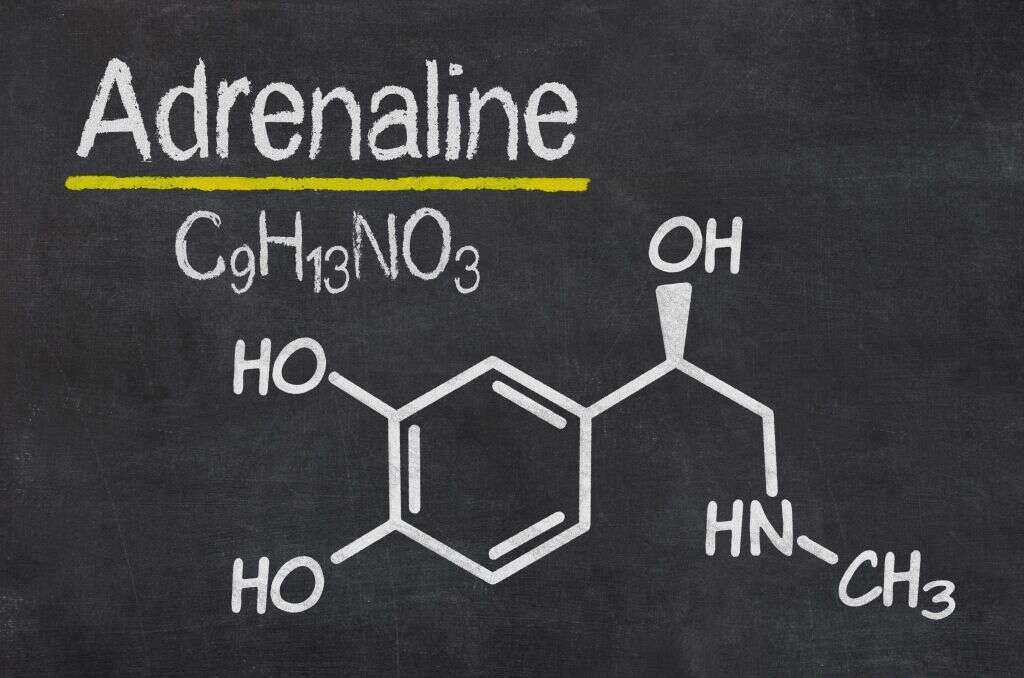What Is Derealization?
You are talking to your best friend during your standing lunch date one Friday. Everything seems fine, and then her facial expressions seem to change the texture of her skin. She almost looks like she’s made of clay. You look around, and everything seems brighter. Colors are more vibrant as if you are watching what’s going on around you play out on the big screen. The noise is suddenly overwhelming.
What you are going through is not all that unusual. Derealization is marked by the sense that whatever is going on around you isn’t real. When triggered, your brain distorts reality and makes it more difficult to know if what you’re seeing is actually happening. According to the National Alliance on Mental Illness, up to half of the world’s population will experience some form of derealization at least once in their lives. If the problem occurs frequently, however, there may be underlying factors.

1. What Is Derealization?
Derealization is a type of dissociation. Generally speaking, dissociation happens when people do not experience the world around them as it exists and have no control over the matter. It’s an involuntary escape from reality.
You may often decide to temporarily take a mental escape in order to relax. There are many ways that people do this, such as reading, watching TV and daydreaming. When you stop having control over your perception and you start to hear or see things that you know can’t be right, that’s when it becomes a problem. You realize something is wrong, but your senses are so overloaded that stimuli are either muted or magnified in your perception. Then you are likely experiencing derealization.

2. What Are the Symptoms of Derealization?
Unlike those afflicted with psychotic disorders, people who experience frequent derealization know that something is wrong with what they’re seeing. Sometimes, they may view things as if through a fog. Everything around them seems muted like they’re in a dream state. At other times, the opposite effect can occur. Colors seem sharper or objects and people can appear unnaturally small or large.
Not all symptoms of derealization are visual. Sounds may seem louder than they should be or they may become muffled, making it hard for the person experiencing derealization to hear what’s going on. Time itself can seem to speed up, slow down or stop completely. Any noticeable change in the way you sense what is happening around you could be an instance of derealization.

3. How Is Derealization Different from Depersonalization?
In a nutshell, depersonalization is dissociation from oneself, whereas derealization is dissociation from one’s surroundings. Depersonalization occurs when people feel out of touch with themselves. They may not be able to control their words and actions and tend to not experience their emotions as their own. They may even feel detached from their senses, becoming unable to experience taste, touch or smell.
By contrast, people who experience derealization still tend to have a strong sense of self. It’s not who they are that seems distorted but rather everything around them. Their view of the physical world seems to be from the outside looking in. They often feel like they are watching their surroundings on a screen rather than participating in them directly.

4. Who Is Most Likely to Experience Derealization?
It makes sense that derealization is a common experience for those who experiment with recreational drug use. Dealers market this phenomenon as a perk. Hallucinogens are attractive to users because they want to escape their reality. They are looking for an out-of-body experience, and that’s exactly what the chemicals in certain drugs deliver.
Not all derealization is drug-induced, though. Migraines can cause blurred vision or tunnel vision and a hypersensitivity to sound and light. People with mood disorders such as anxiety and depression often have dissociative symptoms that cloud their senses, particularly with the onset of panic attacks. The fear that plagues people with post-traumatic stress disorder or various phobias can cause the synapses in the brain to misfire, making their surroundings appear distorted. There are many reasons that derealization can occur.

5. What Causes Derealization?
Chronic derealization isn’t usually a problem that stands on its own. It is most often a symptom of some other health issue or affliction. Any disease or condition that alters the brain’s function can result in derealization. For example, patients with dementia frequently become hypersensitive to sensory input. This is why their treatment plans usually involve keeping them in a familiar, controlled environment where distortions of their perception are less likely to be severe.
Stress is a leading factor in most cases of derealization, particularly intense early childhood stress. Children who experience abuse or neglect often detach from their surroundings as a coping mechanism. Traumatic events such as war or the death of a loved one can also lead to derealization. Even something as common as the ending of a relationship or extra pressure at work can cause enough stress to trigger dissociative symptoms.

6. What Are the Biological Factors That Contribute to Derealization?
There is a chemical component to derealization. When faced with a sudden stressor, the body produces adrenaline. This is normal and healthy, as it boosts the ability to respond quickly to danger through a flight-or-fight response. If the perception of danger is prolonged or consistent, however, the mind can go into overdrive and keep producing the chemicals it thinks it needs to combat the stressor. This can alter the way someone perceives themselves or their surroundings.
A common stress response is a change in breathing patterns. The heavier a person breathes, the more oxygen is delivered to the bloodstream, which can produce symptoms of light-headedness if it goes on for too long. This light-headedness can distort sensory input. If the person notices the change and starts to hyperventilate, it usually compounds the derealization.

7. How Long Does an Episode Usually Last?
There is no set time for an episode of derealization because there are many factors that determine how long it lasts. Many people find relief within a few hours, particularly if it results from a treatable physical ailment. Others, such as those with seasonal depression, may undergo a dissociative episode for a few weeks or months. They are aware that their perception is distorted, but they can’t necessarily escape from it.
In some cases, derealization can be ongoing and last for years. People may feel detached from their environments as if they are watching what’s happening rather than being a part of it, and this detachment may simply be a characteristic of their ongoing mental illness. When episodes last this long, they may also be accompanied by depersonalization, which can cause people to start to question whether they themselves are even real.

8. How Is Derealization Diagnosed?
One episode of derealization is not necessarily cause for alarm, particularly if there is a clear, one-time trigger. The doctor first attempts to rule out other causes, such as medication, or an underlying condition, such as schizophrenia. This precaution keeps the doctor from treating derealization when it’s a symptom and not actually the problem itself.
When derealization is consistent, however, a diagnosis is necessary to formulate a treatment plan. A diagnosis requires the persistent experience of dissociation that the patient recognizes as a distortion of reality. The derealization must also cause significant distress and interrupt the person’s ability to function well at work or in daily life to result in a diagnosis.

9. What Are the Treatment Options for Derealization?
There are several ways a doctor can approach derealization, and the correct treatment depends on several factors. If the cause is determined to be mostly chemical, medication may be helpful in controlling the symptoms. Doctors may prescribe antidepressants or selective serotonin reuptake inhibitors to balance out the chemicals the brain is producing to combat stress. Achieving this balance can diminish derealization.
Even if medication is part of the treatment, if you are diagnosed with derealization, you can also benefit from psychotherapy. Talking through the experience can help you recognize when it’s occurring and restructure thought patterns to adjust your perception. Cognitive-behavioral therapy often yields good results. Learning to recognize and acknowledge that the danger you fear is not real is a solid first step in controlling your reaction to it.

10. What Practices Help Minimize Derealization Symptoms?
Through therapy, you can learn several tools for dealing with derealization episodes when they occur. The key is to ground yourself in the reality you know to be true. It may be helpful to develop a mantra that brings you back to your center, such as “I am safe” or “There’s nothing to fear in my reality.” Find sensory input, such as grabbing on to something cold or playing your favorite music. This can help ease the experience of distortion.
Unlike many problems, derealization can often be effectively managed by inattention. Once you realize what is going on, fight the urge to obsess about it. Distract yourself from the fuzzy vision with a new activity that you can focus on instead. The less you fixate on the experience of derealization, the less power it has over you. Redirecting your attention elsewhere can minimize the intensity of the experience and shorten the episode.












